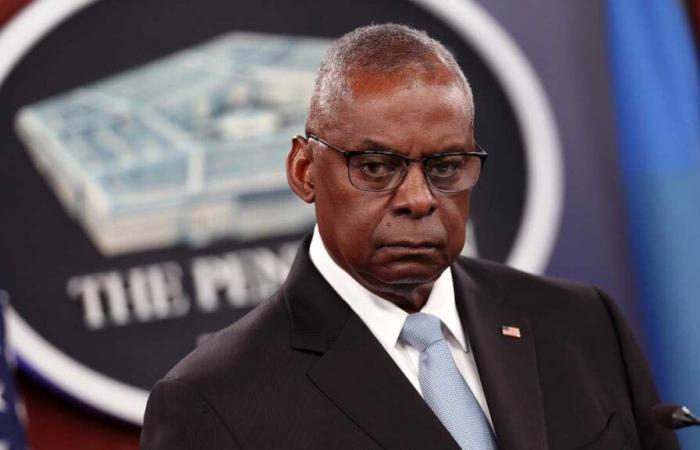The secrecy surrounding Secretary of Defense Lloyd Austin’s hospitalizations in late 2023 and early 2024 “increased unnecessarily” the risks to U.S. national security, the Pentagon’s inspector general concluded in a report released on Wednesday.The nearly year-long review focused on three periods in late 2023 and 2024, when Austin was hospitalized for procedures related to a prostate cancer diagnosis. Austin’s hospitalizations were kept secret from the White House and top national security officials for days, raising huge questions about transparency, communication and the processes surrounding appropriate notifications and transfer of authorities.For two of Austin’s medical procedures on Jan. 6 and 8, 2024, Austin was “moderately sedated,” told that he may have to go under anesthesia and was advised not to engage in any activities requiring unimpaired mental ability for at least 24 hours.But Austin “did not transfer his authorities” during that period, the review found, nor did he inform Deputy Secretary of Defense Kathleen Hicks or his chief of staff of the procedures.For a separate procedure weeks later, Austin was in a “severe condition,” the review found, but did not transfer his authorities to Hicks until “several hours” after he was hospitalized.Storch and his office also found that Austin did not notify the White House and other required entities quickly enough that he would be transferring his authorities to Hicks in December 2023 and January 2024.“The ability for the DoD and the government to operate seamlessly and the continuity of leadership under any and all circumstances are fundamental to our national security,” Storch said in a statement. “Although we found no adverse consequences to DoD operations arising from how the hospitalizations we reviewed were handled, the risks to our national defense, including the command and control of the DoD’s critical national security operations, were increased unnecessarily.” Austin acknowledged last year in a news conference that he made mistakes in how he handled his hospitalizations, attributing his desire for secrecy to simply being a very private person and not wanting to burden others with his condition. Austin’s desire for privacy was so great, the IG found, that he requested that the ambulance picking him up from his home on Jan. 1 not use lights and sirens.“I want to be crystal clear: We did not handle this right. And I did not handle this right. I should have told the president about my cancer diagnosis. I should have also told my team and the American public, and I take full responsibility,” Austin said in February 2024. “I apologize to my teammates and to the American people.” The IG made 20 recommendations to improve the processes in the future, including broadening out the number of people involved in decision-making in similar situations and enhancing the flow of information within DoD and across agencies.
The secrecy surrounding Secretary of Defense Lloyd Austin’s hospitalizations in late 2023 and early 2024 “increased unnecessarily” the risks to U.S. national security, the Pentagon’s inspector general concluded in a report released on Wednesday.
The nearly year-long review focused on three periods in late 2023 and 2024, when Austin was hospitalized for procedures related to a prostate cancer diagnosis. Austin’s hospitalizations were kept secret from the White House and top national security officials for days, raising huge questions about transparency, communication and the processes surrounding appropriate notifications and transfer of authorities.
For two of Austin’s medical procedures on Jan. 6 and 8, 2024, Austin was “moderately sedated,” told that he may have to go under anesthesia and was advised not to engage in any activities requiring unimpaired mental ability for at least 24 hours.
But Austin “did not transfer his authorities” during that period, the review found, nor did he inform Deputy Secretary of Defense Kathleen Hicks or his chief of staff of the procedures.
For a separate procedure weeks later, Austin was in a “severe condition,” the review found, but did not transfer his authorities to Hicks until “several hours” after he was hospitalized.
Storch and his office also found that Austin did not notify the White House and other required entities quickly enough that he would be transferring his authorities to Hicks in December 2023 and January 2024.
“The ability for the DoD and the government to operate seamlessly and the continuity of leadership under any and all circumstances are fundamental to our national security,” Storch said in a statement. “Although we found no adverse consequences to DoD operations arising from how the hospitalizations we reviewed were handled, the risks to our national defense, including the command and control of the DoD’s critical national security operations, were increased unnecessarily.”
Austin acknowledged last year in a news conference that he made mistakes in how he handled his hospitalizations, attributing his desire for secrecy to simply being a very private person and not wanting to burden others with his condition. Austin’s desire for privacy was so great, the IG found, that he requested that the ambulance picking him up from his home on Jan. 1 not use lights and sirens.
“I want to be crystal clear: We did not handle this right. And I did not handle this right. I should have told the president about my cancer diagnosis. I should have also told my team and the American public, and I take full responsibility,” Austin said in February 2024. “I apologize to my teammates and to the American people.”
The IG made 20 recommendations to improve the processes in the future, including broadening out the number of people involved in decision-making in similar situations and enhancing the flow of information within DoD and across agencies.






